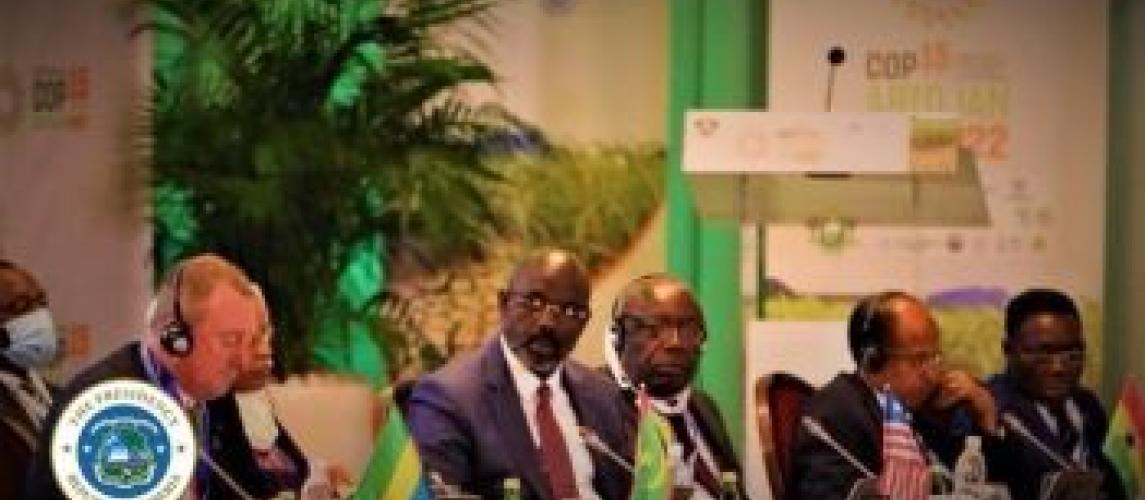
President Weah Drums Up International Actions Against Climate Change
Abidjan, Cote d’Ivoire - The President of the Republic, Dr. George Manneh Weah, says there is urgency for collective global action to deter the crippling effects of climate change, stating that there are huge benefits for Africa and the rest of the world if they acted together.
He also said climate change has the potential to create global insecurity.
Addressing the Heads of State Summit of the Fifteenth Session of the Conference of Parties taking place in Abidjan, Cote D'Ivoire on Monday, May 9, 2022, the President stressed that such danger is insurmountable unless leaders acted urgently and decisively together to deal effectively with the problem of drought and desertification which are elements of climate change.
President Weah said the theme of COP-15, “Land. Life. Legacy: From Scarcity to Prosperity”, could not be more appropriate to draw collective attention to the urgent necessity to preserve, protect, and manage land more efficiently.
"Land is a major natural resource that is too often taken for granted, and it is important that we become aware that, if it is neglected, or used unwisely, it can become a wasting and depletable asset," the Liberian Leader told international delegates at the conference.
He indicated that people of the world do not only derive sustenance from land, but also have a duty to ensure that it will continue to support the lives and livelihoods of future generations.
According to the Liberian Leader, it has become common knowledge that the global stock of healthy land is being increasingly degraded through the combined effects of desertification and drought.
He stressed that "It is therefore important that we use this forum to formulate new policies and approaches to mitigate the negative impact of these phenomena, by restoring degraded land and combating desertification."
President Weah used his speech to remind COP15 Conferees of similar opportunity provided at COP26 in Glasgow, Scotland, to discuss issues surrounding climate change, and to re-awaken the global community to once again conclude on the full implementation of the Paris Agreement, as well as find a lasting and sustainable solution to global warming.
"I represented my Country at COP26, and fully participated in the discussions, because we are of the view that Africa happens to be one of the most vulnerable regions in the world that are heavily impacted by climate change, which tends to impede the growth and development of our dear continent," the President recalled.
As he stated during COP26, President Weah once more informed Leaders that the problem of climate change is not Africa’s making, but it's continuously experiencing the worst consequences of it.
He noted: "Drought and floods are beginning to occur with increasing frequency on the continent, and in many countries which have never experienced them before.'
"This has not only led to the deaths of thousands of our citizens, and the displacement of millions of our people, but has also caused a direct reduction in food security and an increase in cross-border migration of populations," he continued.
At the same time, President Weah informed his counterparts of the significance of finance in addressing land degradation and ecosystem restoration to avoid drought.
While commending various international mechanisms such as the Global Environment Facility, Green Climate Fund, and many others vigorously working with countries to address the issue of combating drought, reducing or preventing desertification, and restoring lost land, he reiterated that there is an inherent imbalance in the current architecture of climate financing.
"We who are the richest in terms of forest resources and biodiversity are also the poorest in terms of socio-economic development," Dr. Weah said further.
"We who are the lowest emitters of harmful greenhouse gases, and who bear the brunt of the impact of climate change, benefit the least from the solutions and financing for tackling climate change," he said and added: " And we who maintain and protect the largest remaining tracts of forest reserves, receive the lowest payments for these ecosystem services."
